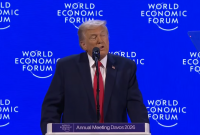
Europe’s asset management industry finds itself under a public magnifying glass after a team of international investigative journalists discovered that the most sustainable funds are still investing in polluting companies. Earlier warnings on possible reputation risks, also from specialists inside the sector, now echo loudly, but so does the observation that a lack of clarity in the current sustainability regulations poses significant challenges, both for the industry and investors.
Half of the European investment funds that ranked themselves in the most sustainable category invest in polluting companies such as oil companies and airlines. This was concluded this week by a collective of nine journalistic media from the Netherlands, Belgium and Luxembourg, among others, who did detailed research of 838 funds.
Dutch funds were particularly mentioned. According to research platform Investico, almost half of all ‘dark green’ investment funds contain fossil and aviation investments. In Luxembourg, the Wort daily and the Luxembourg Times reported on funds with carbon intensive companies in their sustainable portfolios such as French oil giant TotalEnergies, German coal company RWE and airlines such as easyJet and Lufthansa. In France, Le Monde reported similar findings.
European consumer interest body Beuc, an influential group among EU policy makers, said the findings show the need for a clearer and more accurate definition of green financial products. “This deceives consumers and does nothing for sustainability. It’s time for real criteria for green products,” Beuc said on Twitter.
Outdated data
Dutch asset management sector body Dufas pointed out that the investigative media reports are based on data up to 30 June 2022. “Quite a few parties have already adjusted funds under a different SFDR rating since then because there has been more regulatory clarification,” said Dufas policy advisor sustainability Ivan aan den Toorn, adding that regulatory guidance from the Dutch AFM had triggered these adjustments.
Unlike its counterparts in other EU countries, the AFM has told the industry it expects Article 9 funds to be fully invested in sustainable companies that seek to achieve a positive impact in terms of environmental, social and/or governance. Most other national supervisors in the EU have not given such firm and exact guidance, and neither has the EU. This means, in most EU countries, that Article 9 funds that invest in non-sustainable companies are not breaking rules.
Market fragmentation
Luxembourg supervisor CSSF - which has not set hard criteria for Article 9 funds - on Wednesday told Investment Officer it still awaits clear guidance from the EU Commission, also to avoid market fragmentation.
“There are actually no hard investment thresholds set by the EU for Article 8 and 9 funds and the CSSF, in view of promoting supervisory convergence and avoiding market fragmentation, has been advocating for and is supportive of further EU clarification on this aspect,” said CSSF in an emailed statement.
CSSF also said that, while it’s clear that Article 9 funds shall be invested in sustainable investments, these funds are also permitted to invest in other types of companies for hedging or liquidity reasons. “Those funds can also hold, next to the ‘sustainable investments’, investments for certain specific purposes such as hedging or liquidity which need to fit the overall sustainable investment objective,” the CSSF statement said.
Following the publication of The Great Green Investment Investigations, Actiam said it will reclassify some of its most sustainable funds to a less sustainable label early next year. In recent months, Robeco, NN Investment Partners, Kempen, Invesco, Pimco and Neuberger Berman, among others, already did so. Amundi, Europe’s biggest asset manager, reclassified some of its Article 9 funds earlier in November.
Dufas said it does not expect the investigation by FTM and consorts to cause additional downward revaluations of ratings. A more likely trigger, according to AFM’s Aan den Toorn, is the additional interpretation from the European Commission that 100 per cent of investments must be sustainable.
Incomplete sustainability regulations
It’s clear that fund houses struggle with unclear guidelines. There was no exact definition of sustainable and responsible investments and greenwashing when the SFDR rules were introduced. Additional statements by regulators were often unclear, incomplete or contradictory. As long as the EU has not yet provided clear answers, the rules under the SFDR will be interpreted differently, both across the industry and across EU member states.
Belgian regulator FSMA said on Wednesday that by 2024 it will crack down “very harshly” on banks and asset managers engaging in greenwashing. “We cannot lose citizens’ trust in sustainability. It is fundamental to fight greenwashing in the financial sector as well,” FSMA chairman Jean-Paul Servais told De Tijd newspaper.
The Dutch AFM appears to be more accommodating for the time being. “We also understand that fund managers do not always get everything right yet,” sustainable finance coordinator Raoul Köhler told Investico.
This article was written in close cooperation with InvestmentOfficer.nl.
Related articles on Investment Officer Luxembourg:
- CSRD: Industry left ‘to pick up ESG data pieces,’ says Efama
- Tackling greenwashing, Esma asks funds to back up claims
- Sustainable finance: Great reclassification is coming
- Wrong SFDR label gets you bad press
















